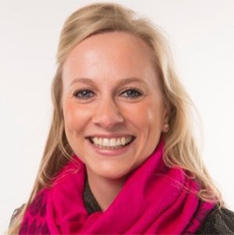 From school days to nowadays Liquid Voice UK co-founder and Managing Director Chris Berry has shown a resilient entrepreneurial spirit that is reflected in his channel ambitions and sharpened appetite to go head-to-head with major global vendors following new investment.
From school days to nowadays Liquid Voice UK co-founder and Managing Director Chris Berry has shown a resilient entrepreneurial spirit that is reflected in his channel ambitions and sharpened appetite to go head-to-head with major global vendors following new investment.
In January this year SVL Business Solutions secured a 25 per cent equity interest in channel partner Liquid Voice, the developer of call recording and contact centre solutions. Following the deal, SVL Business Solutions, a NICE Systems Platinum Partner, plans to set up a new division to offer the Liquid Voice range of products as well as its SmartVoice portfolio of PCI compliance, customer satisfaction and contact centre training solutions. According to Berry, the deal enables Liquid Voice to maximise new business opportunities and extend its presence in the contact centre, financial and public safety markets. "We are working on an arm's length distribution agreement with SVL being our first fully accredited services partner," he said.
Prior to his appointment as Liquid Voice's Managing Director Berry was Sales Director, a post held since the company was first formed. Aside from two brief stints as a corporate employee Berry has spent most of his working life as an owner and Director running his own businesses. His ambition was evident at an early age having set up his first IT consultancy business mid-way through his A levels. "I spent time as a CTI consultant with Comino/Civica where I was responsible for the design and commissioning of IVR and ACD systems fully integrated with their CRM and EDRM solutions for the public sector," said Berry.
Leeds-based Liquid Voice was established by Berry and Andrew Barrett in 2005 having brought Civica/Comino's suite of computer telephony applications to market. "Our original strategy was to capitalise on the growing demand for contact centre solutions with a focus on call recording, quality management and integration," added Berry. "Liquid Voice fills the space where manufacturers don't do so well in terms of service and delivery, providing added value to customers."
The business has been profitable from the outset and after building the product portfolio and establishing a customer base Liquid Voice switched to an indirect sales model. "The transition presented a number of challenges and we have learnt what a software-based business needs to have in place to support the channel and the attributes of a good channel partner," said Berry. "The move to indirect sales through channel partners with accreditations and distribution models is a key factor in Liquid Voice's success in all countries where we operate."
He noted that technological evolution is prompting resellers to become SIs that offer a one-stop-shop so customers do not have to deal with multiple suppliers. "There should also be a focus on raising the level of professionalism throughout the industry with solution sales that meet the ongoing needs of customers rather than only looking for short-term profits based on where the best margin is available," said Berry.
Liquid Voice is now an international operation with offices in the UK and New Zealand and circa 600 customers in a range of market sectors including utilities, retail, financial services, public sector and outsourcing. "I am proud of the way that Liquid Voice has continued to grow despite the uncertainty that the economy has experienced over the last few years," commented Berry. "Liquid Voice has become a well known brand and has the technology and products to effectively compete with the world's largest manufacturers, which presents an opportunity for channel partners to come on board and join us."•

 Ahead of the education sector's summertime ICT buying period Comms Dealer highlights the areas of opportunity for resellers and spotlights the technologies and integrated solutions under consideration by schools planning their summer break upgrades.
Ahead of the education sector's summertime ICT buying period Comms Dealer highlights the areas of opportunity for resellers and spotlights the technologies and integrated solutions under consideration by schools planning their summer break upgrades. In his strategic reactions to new market opportunities hSo Managing Director Chris Evans is not short of a dead cert growth plan. Here, he reveals the strategies and drivers that will double company revenues within three years.
In his strategic reactions to new market opportunities hSo Managing Director Chris Evans is not short of a dead cert growth plan. Here, he reveals the strategies and drivers that will double company revenues within three years. For a man with the unswerving courage of his own convictions, Steve Soper's plan to build Beta Distribution into a £500 million business within five years is entirely plausible.
For a man with the unswerving courage of his own convictions, Steve Soper's plan to build Beta Distribution into a £500 million business within five years is entirely plausible. Intercity Technology has recruited ex-Virgin Media Business sales director Georgina Lord to head up its inside sales and marketing teams.
Intercity Technology has recruited ex-Virgin Media Business sales director Georgina Lord to head up its inside sales and marketing teams.